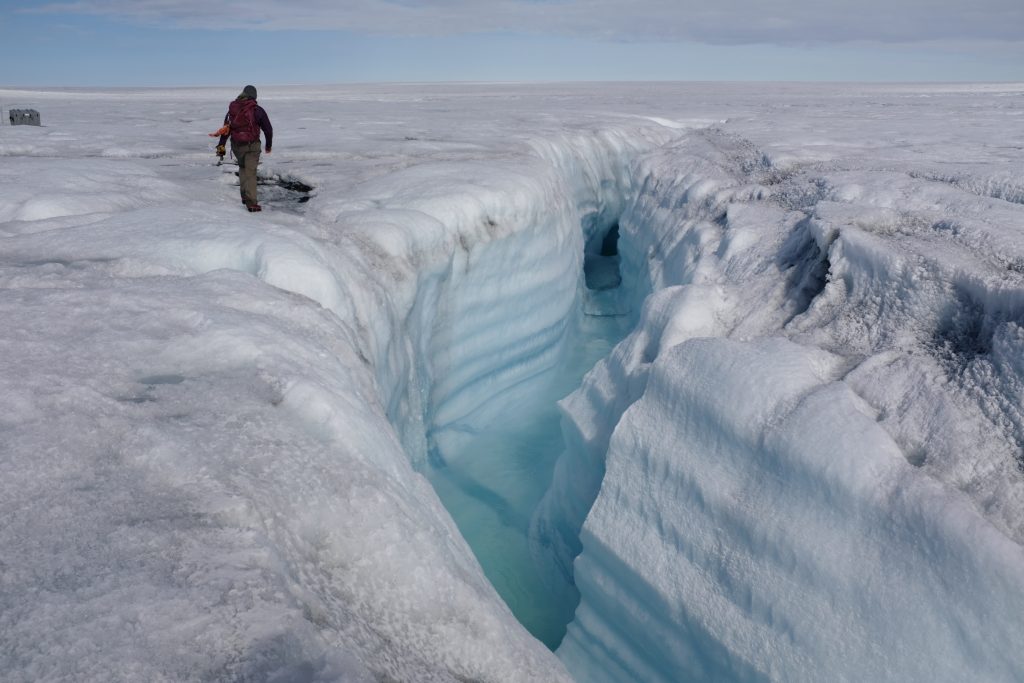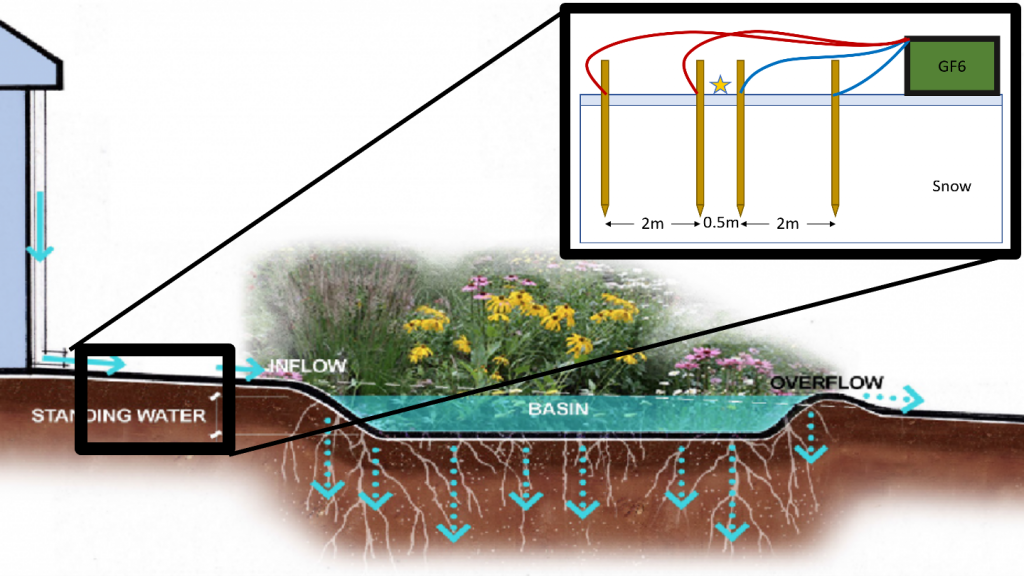The UB Glacier Modeling Lab has a place for new MS or PhD students this year, to start Fall 2024. We are seeking motivated students with skills in, or interest and motivation in developing skills in, quantitative glaciology, including numerical modeling, mathematical modeling, and remote sensing. Members of the Glacier Modeling Lab work together to create an academically supportive and anti-racist community. My primary goal as a professor is to help my students succeed through growth in thinking capacity, research aptitude, and personal fulfillment in the UB Glacier Modeling Lab.
Your work on these projects would be funded by Research Assistantships and Teaching Assistantships.
We are searching for graduate students to work on the following research positions
Evolution of moulins at high elevations in Western Greenland

Photo by Covington research team, 2019.
This NASA-funded project requires a student to apply a MATLAB or Python-based model for the shape and size of a moulin (a waterfall through a vertical hole in the glacier) in Greenland ice. As climate warms, meltwater occurs at higher elevations / farther inland on the ice sheet, and new moulins begin to form at certain sparse locations in the Greenland interior, this has a good chance of changing the seasonal hydrologic patterns at the bed below. This, in turn, would affect the seasonal cycle of ice flow. The research will answer the question How will future moulins in extreme inland locations affect the subglacial water flow in Greenland? The project requires strong analytic skills, the ability to code (or quickly learn to code) in MATLAB or Python, basic GIS skills, and scientific writing/communication skills in English.
Seismoelectric characterization of subsurface water in multiple look directions

We are using a seismoelectric system on the Greenland Ice Sheet, which is considerably beyond the scope for which it was designed. In order to understand the complex signals from Greenland, we need to hone what is observable in known systems that involve subsurface water at various distances and directions, and in the presence of snow, ice, and snowmelt. These features are available locally, in Buffalo and western New York. This project requires strong analytic skills with application to experimental geophysics, the ability to conduct local fieldwork around Buffalo and western New York in cold weather, the ability to code (or quickly learn to code) in MATLAB or Python, and scientific writing/communication skills in English. Learn more details from this video.
I’m always looking to add motivated students to my research group. I am particularly interested in working with students from minoritized backgrounds. If you’re interested in researching this topic, drop me a note and we’ll explore a research fit! Please include in your inquiry email your background, scientific interests, and research skill set or any research experience.
🧊
You can apply for a graduate research position at http://arts-sciences.buffalo.edu/geology/apply.html . UB Geology does NOT require the Graduate Record Examination (GRE) for admission to the graduate program.